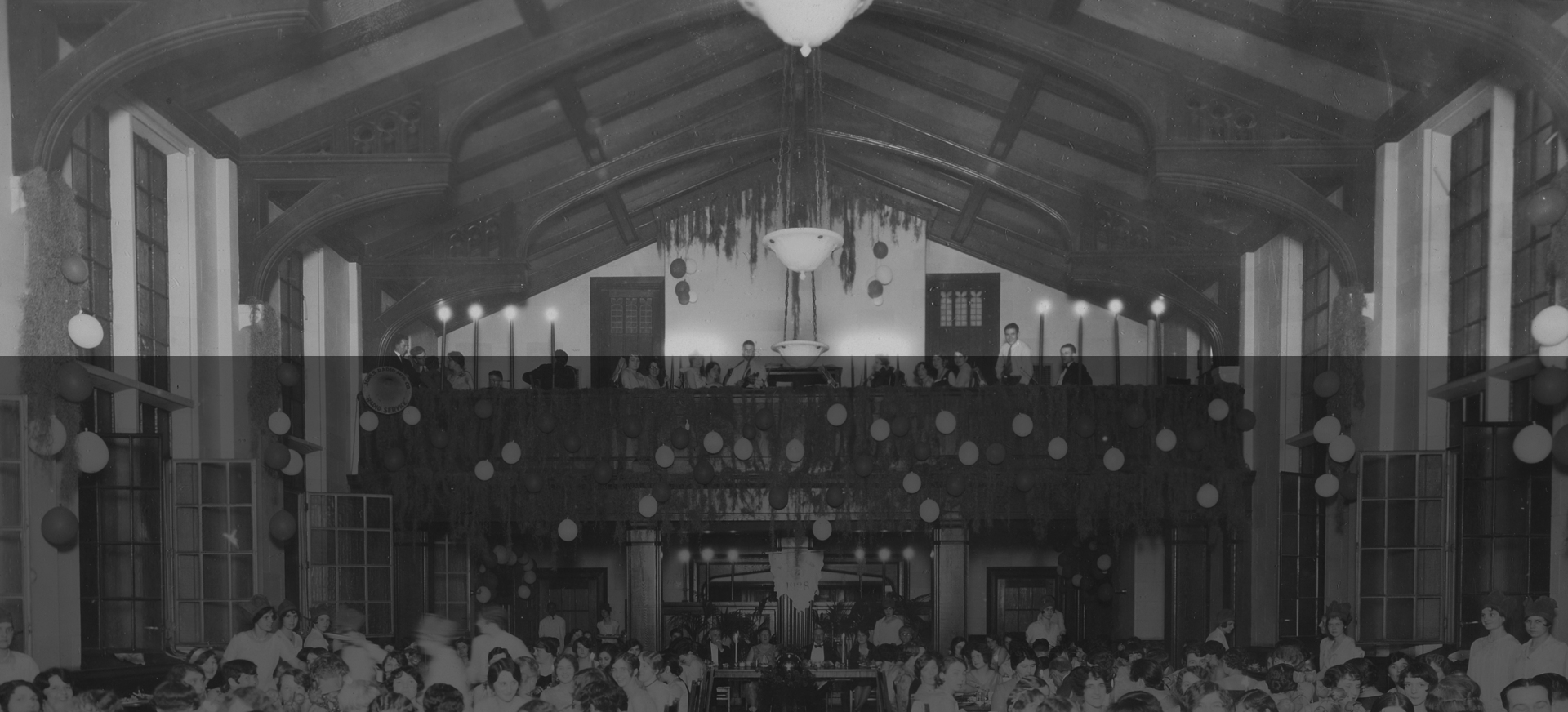
Alpha Phi Omega
Alpha Phi Omega
Overview
Alpha Phi Omega (APO) was founded at Lafayette College in 1925 as a service fraternity. The group consisted of former Boy Scouts and was designed as a way to continue practicing the principals they learned in the Scouts. As of 2021, is it the largest collegiate fraternity in the United States with over 350 chapters.
"...Alpha Phi Omega brings together a cross-section of men, who are interested in furthering the ideas of leadership, friendship, and service as previously experienced by them during their association with the Boy Scouts of America." - the Tower Light, Sept. 27, 1949
After petitioning for official recognition in September 1949, the Towson University Iota Gamma Chapter was chartered on May 20, 1950. When the chapter was first chartered, membership was limited to men and qualifications included previous experience in the Boy Scouts of America, a desire to serve others, and good academic standing. Bill Hammerman served as the initial chapter contact, having previously been an APO member at Drexel Institute of Technology.
During its initial founding, the group’s activities included repair and clean-up of the Glen, running the school lost-and-found, organizing the central campus bulletin board, and organizing an annual "Ugly Man Contest" and fundraiser.
By 1953 the group was already suffering from near inactivity, with a revitalization campaign happening in April 1953 and formal reorganization in November 1955. According to national records, the group became officially inactive in early 1961, but continued to meet on campus, hold elections, and host event until 1963.
The Towson campus chapter was reactivated on May 8, 2004. Now a co-ed service fraternity organization, membership is open to all students who comply with anti-discrimination requirements and have at least a 2.0 GPA. Active members must fulfil service goals and attend regular meetings.
Contemporary service projects include organizing stream cleanups, providing sandwiches for Our Daily Bread Employment Center in Baltimore, hosting bake sales to benefit the Trevor Project, volunteering at Girl Scout camps, hosting welcome home events for military servicemembers, food drives, and blood drives.
research by Reilly Riemer, Archives Student, Spring 2021
written by Allison Fischbach, Research and Archives Associate, Fall 2021
Overview
Alpha Phi Omega (APO) was founded at Lafayette College in 1925 as a service fraternity. The group consisted of former Boy Scouts and was designed as a way to continue practicing the principals they learned in the Scouts. As of 2021, is it the largest collegiate fraternity in the United States with over 350 chapters.
"...Alpha Phi Omega brings together a cross-section of men, who are interested in furthering the ideas of leadership, friendship, and service as previously experienced by them during their association with the Boy Scouts of America." - the Tower Light, Sept. 27, 1949
After petitioning for official recognition in September 1949, the Towson University Iota Gamma Chapter was chartered on May 20, 1950. When the chapter was first chartered, membership was limited to men and qualifications included previous experience in the Boy Scouts of America, a desire to serve others, and good academic standing. Bill Hammerman served as the initial chapter contact, having previously been an APO member at Drexel Institute of Technology.
During its initial founding, the group’s activities included repair and clean-up of the Glen, running the school lost-and-found, organizing the central campus bulletin board, and organizing an annual "Ugly Man Contest" and fundraiser.
By 1953 the group was already suffering from near inactivity, with a revitalization campaign happening in April 1953 and formal reorganization in November 1955. According to national records, the group became officially inactive in early 1961, but continued to meet on campus, hold elections, and host event until 1963.
The Towson campus chapter was reactivated on May 8, 2004. Now a co-ed service fraternity organization, membership is open to all students who comply with anti-discrimination requirements and have at least a 2.0 GPA. Active members must fulfil service goals and attend regular meetings.
Contemporary service projects include organizing stream cleanups, providing sandwiches for Our Daily Bread Employment Center in Baltimore, hosting bake sales to benefit the Trevor Project, volunteering at Girl Scout camps, hosting welcome home events for military servicemembers, food drives, and blood drives.
research by Reilly Riemer, Archives Student, Spring 2021
written by Allison Fischbach, Research and Archives Associate, Fall 2021
